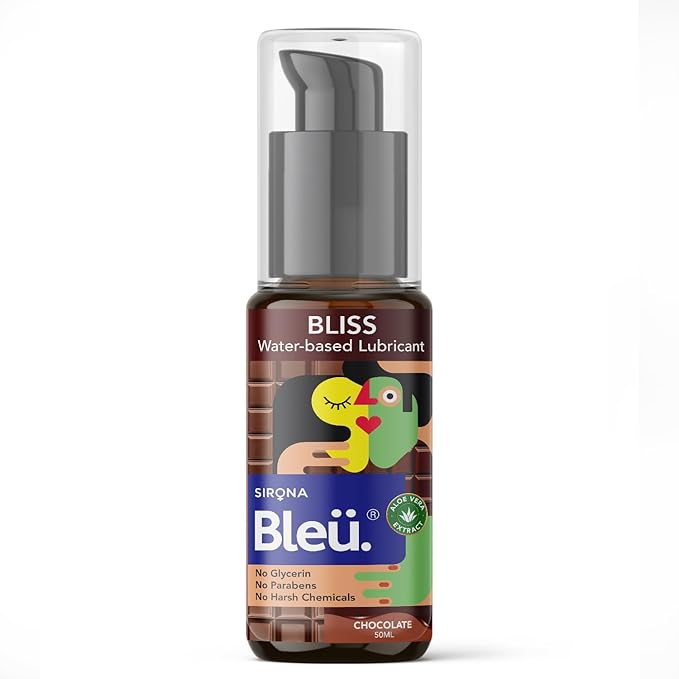Losing virginity is a personal and often misunderstood experience, surrounded by countless myths and unrealistic expectations. With so much conflicting advice and societal pressure, it can be difficult to know where to turn for honest, clear guidance. This article is designed to strip away the myths and provide a realistic perspective on your first time. Whether you’re curious, nervous, or simply seeking information, our goal is to offer a clear and empowering guide on how to lose virginity, focusing on what truly matters: consent, communication, and self-awareness. So, without any further ado let’s have a clear picture on how to break virginity.
What Is Virginity?
Virginity is often considered a cultural or social concept referring to someone who has not engaged in sexual intercourse. Historically, it has been linked to various notions of purity, moral values, or societal expectations, often tied to gender and traditional beliefs. However, the meaning of virginity varies significantly across cultures and individuals.
It is important to note that virginity is not a biological or physical state but rather a personal and subjective experience. For many, it is a matter of choice, comfort, and timing, with no universal or inherent definition. The concept is increasingly being questioned, as many advocate for a more inclusive and non-judgmental understanding of sexual experiences.
Why does Losing Virginity Sometimes Hurt?
Losing virginity can sometimes cause discomfort or pain due to a variety of factors, many of which are natural and temporary. One of the most common reasons is the stretching or tearing of the hymen, a thin membrane located at the entrance of the vagina, though not everyone has an intact hymen. Pain can also result from lack of lubrication, which may cause friction during intercourse.
Emotional factors such as nervousness or anxiety can also play a role, as they can cause the body to tense up, making penetration more uncomfortable. Communication with your partner, using adequate lubrication, and ensuring mutual consent and readiness can help minimize discomfort and make the experience more comfortable.
Importance of communication and consent
Clear communication and mutual consent are the foundation of any healthy sexual relationship. Openly discussing boundaries, desires, and expectations ensures both partners are comfortable and on the same page. Consent is not just a one-time agreement but an ongoing process, where both individuals feel safe and respected at every stage. It empowers both people to express their feelings and make decisions that are right for them, creating a trusting and respectful environment.
These are some important factors you should consider for a better understanding and communication:
- Mutual Respect: Communication allows both partners to understand and respect each other’s boundaries, fostering trust.
- Comfort and Readiness: Discussing comfort levels and readiness helps avoid feelings of pressure or discomfort.
- Ongoing Consent: Consent should be given freely and can be withdrawn at any time, ensuring both partners feel safe and heard.
- Enhanced Experience: Open dialogue helps align expectations, making the experience more enjoyable for both individuals.
- Prevents Misunderstandings: Clear communication reduces the risk of confusion and ensures both partners are on the same page regarding intentions and actions.
Preparing for Your First Time
Preparing for your first sexual experience involves both physical and emotional readiness. It’s important to take time to understand your body, communicate openly with your partner, and ensure that you feel comfortable and confident. Keep reading to learn some physical and emotional preparations that you should consider before breaking your virginity.
Physical Preparation
Below are some physical preparations that you and your partner should consider before losing your virginity.
- Hygiene – Maintaining proper hygiene is essential before your first time. Cleanliness not only helps prevent infections but also contributes to comfort and confidence. A shower or bath beforehand ensures you feel fresh and relaxed.
- Lubrication – Lubrication is key to reducing friction and making the experience smoother. Whether natural or with the help of a lubricant, this can make penetration more comfortable and reduce the chance of pain or discomfort.
The Modern Womanly Recommends Sirona Lube Tube – Strawberry Flavour

Experience smooth, long-lasting comfort with Sirona Lube Tube in Strawberry Flavour. This water-based lubricant is designed to enhance intimacy with its silky texture and a sweet strawberry scent, ensuring a pleasurable experience for both partners. The easy-to-use tube offers precise application, and the gentle, non-irritating formula is suitable for sensitive skin. Perfect for all kinds of sexual activity, this lube is compatible with condoms and ensures a friction-free experience every time.
Bleu Water-Based Lube – Chocolate Flavour

Indulge in a decadent experience with Water-Based Lube in Chocolate Flavour. This 50ml lubricant delivers a smooth, silky texture that enhances comfort and pleasure during intimacy. Its rich chocolate taste adds a fun twist to your experience, making it perfect for blowjobs and vaginal use. Made with a gentle formula, this water-based lube is safe for sensitive skin, non-sticky, and free from harmful chemicals, providing a luxurious, friction-free experience. Compatible with all condoms, it’s an ideal choice for a worry-free, enjoyable time.
- Relaxation Techniques – If you’re feeling nervous or tense, relaxation techniques such as deep breathing, gentle stretching, or calming music can help you relax. When your body is more relaxed, you’re less likely to feel discomfort or anxiety during the experience.
Emotional Preparation
Below are some emotional preparations that you and your partner should consider before having sex for the first time.
- Setting the Mood – Creating a comfortable and intimate atmosphere can help ease any anxiety or pressure. Setting the mood through soft lighting, relaxing music, or a private, quiet space allows you to focus on the experience and your partner, rather than distractions or worries.
- Managing Anxiety – It’s natural to feel anxious before your first time. Managing anxiety through positive self-talk, slow breathing, or grounding techniques can help you stay calm and in control, making the experience more enjoyable.
- Open Communication with Your Partner – Discussing expectations and boundaries with your partner beforehand ensures that both of you feel safe and respected. Open communication allows for a more relaxed and enjoyable experience, where both partners can share their feelings and ensure mutual consent at every step.
Tips for a Pain-Free Experience
A pain-free experience during your first time sex can be achieved by focusing on comfort, patience, and awareness. Taking your time, experimenting with different positions, and listening to your body are key elements that can help reduce discomfort. By being mindful of your physical and emotional needs, you can create a more positive and enjoyable experience.
Go Slow
Taking things slow is essential for a pain-free first time. Starting with foreplay helps relax both partners and increases arousal, making the body more receptive and ready for intercourse. Gradual penetration allows your body to adjust and reduces the chance of discomfort or pain.
Experiment with Positions
Finding the right positions that work for both you and your partner can greatly reduce discomfort. Some positions may feel more natural or comfortable than others. Experiment with different positions to discover what feels best for you, and don’t hesitate to try alternative positions that might ease any pressure or discomfort.
Listen to Your Body
Pay attention to how your body feels during the experience. Communicate your needs to your partner, whether it’s adjusting the pace, angle, or taking breaks. If you feel any discomfort or pain, don’t hesitate to pause or adjust until you feel comfortable again. Listening to your body ensures that the experience is enjoyable and stress-free.
Safer Sex Practices
Engaging in safer sex practices is crucial for protecting your health and well-being during sexual activity. By incorporating the below-mentioned preventive measures you can ensure a safer and more responsible sexual experience.
STI Testing
Before engaging in sexual activity, it’s important to get STI testing. Many STIs can be asymptomatic, meaning you may not experience symptoms but could still transmit the infection. Regular testing ensures that both partners are aware of their sexual health status, reducing the risk of spreading or contracting any sexually transmitted diseases. Discussing and sharing test results with your partner is an essential step in fostering trust and protecting each other’s health.
Birth Control
There are various birth control methods available, each with its own pros and cons. These methods, including pills, IUDs, patches, and injections, help prevent unintended pregnancies. Choosing the right birth control method depends on factors such as convenience, effectiveness, side effects, and personal preferences. It’s important to consult with a healthcare provider to find the most suitable option for your lifestyle and needs.
Use of Condoms
Using a condom is one of the most effective ways to prevent both STIs and unintended pregnancies. Condoms act as a barrier, reducing the risk of transmission of yeast infections like HIV, chlamydia, and gonorrhoea. They are easy to use, widely available, and provide an additional layer of protection when used correctly. Combining condoms with other forms of birth control can further enhance protection and provide peace of mind during sexual activity.
Common Concerns and Misconceptions
When it comes to losing virginity, many common concerns and misconceptions can cause unnecessary stress or confusion. Below are some common misconceptions that you must know about.
The Hymen Myth
One of the most persistent myths surrounding virginity is the idea that the hymen must be intact for someone to be considered a virgin. In reality, the hymen is a flexible membrane that can vary in appearance and may not necessarily tear during first intercourse. Some people are born with little to no hymen, while others may experience stretching or tearing through activities unrelated to sex, such as sports or tampon use. The state of the hymen has no bearing on a person’s virginity or sexual health.
Pain vs. Pleasure
Many people worry that losing virginity will be painful, but pain is not inevitable. Discomfort can occur, particularly if the body is not sufficiently relaxed or lubricated, but this can often be avoided with proper preparation. It’s also important to remember that pleasure should be part of the experience. Communicating openly with your partner, taking things slow, and ensuring you’re both comfortable can help shift the focus towards a positive and enjoyable experience.
Seeking Professional Help if Needed
If you have any concerns or if the experience is causing you physical or emotional distress, it’s important to seek professional help. A healthcare provider can offer advice on physical discomfort, while a therapist or counsellor can support emotional concerns. It’s perfectly okay to reach out for guidance and reassurance, ensuring that both your physical and mental health are prioritized throughout the process.
Conclusion
In conclusion, losing virginity is a personal and unique experience that should be approached with patience, care, and respect. By preparing both physically and emotionally, communicating openly with your partner, and focusing on comfort and consent, you can ensure a more positive and fulfilling experience. It’s important to dispel myths and understand the reality of what to expect, remembering that every individual’s journey is different. If any concerns arise, whether physical or emotional, seeking professional help is always a good step towards understanding and healing. With the right mindset, communication, and preparation, your first time can be a memorable and empowering experience.
FAQs on how to lose virginity
It’s not uncommon to experience some discomfort or mild pain when losing virginity, especially if your body isn’t fully relaxed or if there isn’t enough lubrication. Every experience is different, and factors like anxiety or tension can also contribute to discomfort. If the pain persists, it’s important to communicate with your partner and seek advice from a healthcare professional.
It’s perfectly okay for one partner to have more experience than the other. The key is communication, mutual respect, and ensuring that both partners are comfortable with the experience. It’s important to go at a pace that feels right for both of you and ensure that you feel ready emotionally and physically.
Virginity is often defined by the first instance of vaginal intercourse. However, for some people, the concept of virginity may be personal or symbolic, and can vary based on individual or cultural beliefs. Oral sex and masturbation are not considered ways to lose virginity, but they can be important parts of sexual experiences.
Feeling nervous or anxious is normal, especially if it’s your first time. Practicing relaxation techniques, such as deep breathing or gentle stretching, can help calm your nerves. Communicating your feelings with your partner can also ease any anxiety, allowing you to feel supported and understood.
Focusing on communication, relaxation, and comfort can greatly improve the experience. Taking your time with foreplay, ensuring proper lubrication, and finding positions that work for you both can enhance pleasure and reduce discomfort.
To make the experience less painful, ensure that you’re fully relaxed and aroused before attempting penetration. Using lubrication, taking things slowly, and experimenting with different positions can help make the experience more comfortable. It’s also important to check in with your partner to ensure mutual consent and comfort.
Communication is incredibly important. It ensures that both you and your partner are on the same page about boundaries, desires, and comfort levels. Open dialogue helps create a safer and more enjoyable experience, reducing anxiety and fostering trust.
If you’re still experiencing pain after trying relaxation techniques and following other advice, it’s a good idea to consult a healthcare professional. Persistent pain could be a sign of an underlying issue, such as an infection or anatomical concern, that requires medical attention.
For first-time sex, it’s best to choose water-based lubricants as they are gentle, easy to use, and safe for most types of condoms and toys. Silicone-based lubricants can last longer but may not be compatible with silicone-based toys. Avoid lubricants with fragrances or additives that could irritate.



